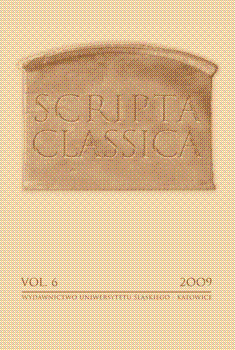East — West. The Theory of “Guna” in A.W.Schlegel’s Translation of the “Bhagavadgita”. Notes on Translation
East — West. The Theory of “Guna” in A.W.Schlegel’s Translation of the “Bhagavadgita”. Notes on Translation
Author(s): Marta WowraSubject(s): Language and Literature Studies
Published by: Wydawnictwo Uniwersytetu Śląskiego
Keywords: intercultural translation; Bhagavadgita; guna; sattva; rajas; tamas; Schlegel.
Summary/Abstract: Schlegel’s translation of Bhagavadgita documents a landmark attempt of assimilating and popularizing an important Indian text within the European mind. Presented in this article analysis of the translation suggests that Schlegel’s utilitarian goals overshadowed his efforts to accurately present some of Bhagavadgita’s key terms. Furthermore, by reason of an assumption in regards to the existence of factual equivalents of these terms in the Western culture, the ambition of layering the system of guna onto the Western mind resulted in an unclear representation of the underlying content found in the original Bhagavadgita; proper interpretation of the terms in accordance with their cultural heritage became impossible. In conclusion, contrary to Schlegel’s technique, modern inclinations and guidelines for sustaining philosophical terms in harmony with their original pronunciations are more likely to decrease the risk of stumbling upon copious doorways for interpretation and heading for resignation. Such approach may also help diminish the presence of excessive eruopocentrism in future processes of understanding the Indian mind and philosophy.
Journal: Scripta Classica
- Issue Year: 2009
- Issue No: 6
- Page Range: 151-157
- Page Count: 7
- Language: English

